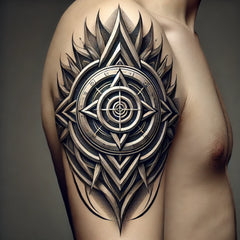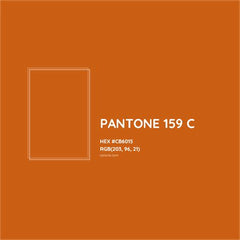Your cart is empty now.

Unusual ways companies have resolved trademark disputes
- 17 June, 2024
- Nyall Engfield
Unusual ways companies have resolved trademark disputes
Some of the most unusual ways companies have resolved trademark and branding disputes include:
- BrewDog's founders changed their first names to Elvis by deed poll in an attempt to convince the court they had named their "Elvis Juice IPA" beer after themselves, not Elvis Presley, when challenged by Elvis Presley Enterprises. While initially successful in the UK, their latest appeal to trademark the beer name in Europe was dismissed.
- Apple Inc. (known for iPhones and Macs) became entangled in a legal conflict with Apple Corps (representing The Beatles) over the Apple name and logo. After litigation, they reached a settlement in 2006 allowing both companies to use their respective Apple trademarks
- When Hugo Boss challenged an artist's use of the slogan "Be Boss, Be Kind" (with "boss" being Liverpool slang for "great"), they reached an amicable out-of-court agreement allowing the artist to continue using the slogan.
- Google avoided potential infringement by changing their early search engine name from "Backrub" to "Google". They later partnered with blockchain company Chainlink to create a secure trademark system using blockchain technology
-
In the UK, A tattoo parlor owner unsuccessfully sued a nearby cactus shop for using the word "prick" in its name "Prick Me Baby One More Time", claiming it infringed on his "Prick Tattoos" business. The court ruled the public wouldn't assume a connection between the two businesses just based on the common word.
- The Prick Tattoos trademark case involved a dispute between Henry Martinez, a well-known tattoo artist who runs a tattoo parlor called "Prick Tattoos" in Shoreditch, London, and Gynelle Leon, the owner of a nearby cactus and succulent plant shop named "Prick Me Baby One More Time" in Dalston.
- Martinez alleged that Leon's use of the word "prick" in her shop's name amounted to passing off, suggesting it represented a connection to his tattoo business in order to benefit from its goodwill and reputation. His tattoo studio heavily featured the "Prick" branding, including a neon sign, t-shirts with "Prick" printed on them, and gift certificates called "Prick Dollars".
- However, the court ruled in favor of Leon and her cactus shop. While acknowledging that Martinez's "Prick Tattoos" had some goodwill, it was essentially limited to tattoos. Crucially, there was no evidence that the public would assume a connection between the two businesses simply because they both used the word "prick". The court decided that despite the geographical proximity, the use of "prick" in relation to a cactus shop would not deceive customers into thinking it was linked to the tattoo parlor.
- So in summary, Martinez's passing off claim against "Prick Me Baby One More Time" was unsuccessful, with the court finding that the cactus shop could continue to use "prick" in its name without infringing on the tattoo parlor's trademark.
-
Starbucks vs Charbucks: the outcome of the trademark dispute between Starbucks and Black Bear Micro Roastery over Black Bear's use of "Charbucks" was that Starbucks ultimately lost the case after a lengthy legal battle. The key details are:
- In 2001, Starbucks sued Black Bear, alleging that Black Bear's use of "Mister Charbucks", "Mr. Charbucks", and "Charbucks Blend" for its coffee products diluted Starbucks' famous trademark.
- After a trial in 2005, the District Court initially ruled that the Charbucks marks were not likely to dilute the Starbucks marks. Starbucks appealed this decision.
- The case went back and forth between the District Court and the Court of Appeals over several years, with rulings in 2007 (Starbucks I) and 2009 (Starbucks II)
- In 2013, the Second Circuit Court of Appeals issued a final ruling in favor of Black Bear.
- The court found that while some factors weighed in Starbucks' favor, the weak evidence of actual association between the marks and the minimal similarity of the marks weighed heavily in Black Bear's favor
- The court held that Starbucks did not meet its burden of proving that Black Bear's use of "Charbucks" would cause a "blurring" of Starbucks' brand in the minds of consumers. Starbucks stated it would respect the court's decision
- So in summary, after over a decade of litigation, Starbucks lost its trademark dilution case against the small New Hampshire coffee roaster Black Bear Micro Roastery, allowing Black Bear to continue using the "Charbucks" name.
Search
Archive
- August 2024
-
- How to avoid being locked out of your Amazon product listings
- If you tattoo a trademark on your body - Skinvertising- can you be sued?
- Burnt Orange - University of Texas Trademark of Pantone 159
- Jungle Superheroes - famous characters similar to Tarzan and the difficulties of maintaining a monopoly
- What happens to the trademark rights if the renewal is missed



